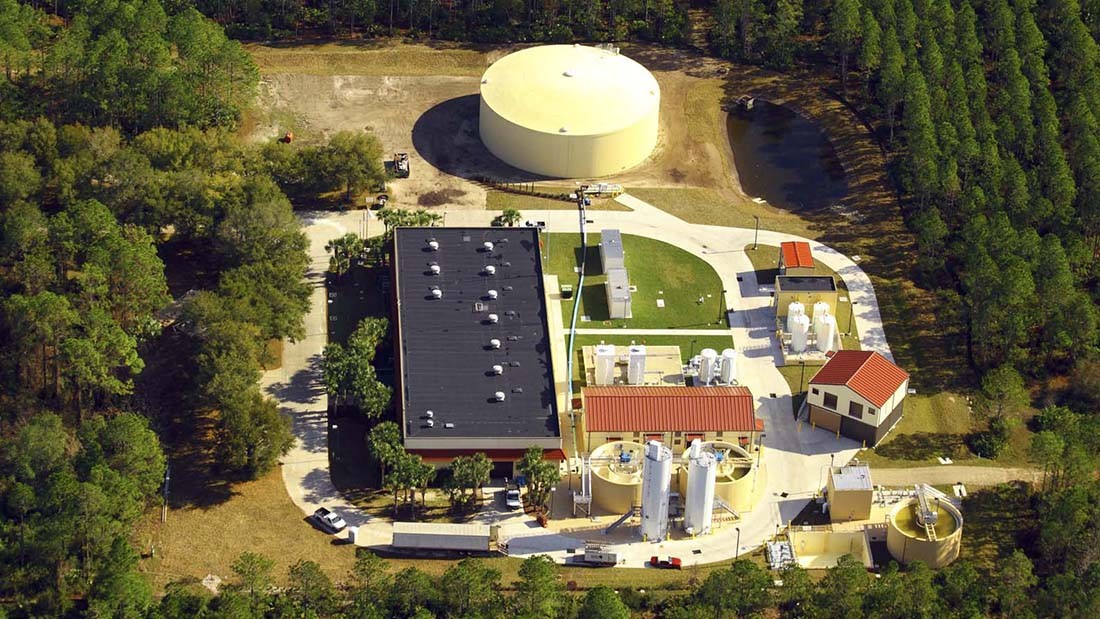TURNKEY PROJECT
Turnkey project
A turnkey solution refers to a complete package of products and services that are designed to be easily implemented and operated by the customer, without the need for extensive customization or integration. Overall, the term "turnkey" implies a high level of convenience and simplicity, as the user can simply "turn the key" and start using the product or service immediately.
Along with designing safe water solutions, FloWater encompasses financing all or part of the construction work for new plants or optimizing existing facilities. On a case-by-case basis, we can arrange for 100% financing or a partial investment, possibly in collaboration with other stakeholders such as commercial lenders, international finance institutions, strategic financiers, and so on.
Turnkey Benefits – Explained
- Reduced project complexity: Turnkey projects provide a single point of responsibility, which means that the project owner or client only has to deal with one entity for the entire project. This simplifies the project and reduces complexity, allowing for better communication, more efficient decision-making, and faster project completion.
- Time savings: Turnkey projects are designed to be completed quickly and efficiently, as the contractor is responsible for all aspects of the project, from design to implementation. This means that turnkey projects can be completed in a shorter amount of time than traditional projects.
- Cost savings: Since turnkey projects are completed quickly and efficiently, they often result in cost savings for the project owner or client. This is because the contractor is responsible for all aspects of the project and can use their expertise to find the most cost-effective solutions.
- Quality control: Turnkey projects typically involve a high level of quality control, as the contractor is responsible for ensuring that all aspects of the project meet the required standards. This means that turnkey projects are more likely to be completed to a high standard and with fewer defects.
- Reduced risk: With turnkey projects, the contractor assumes most of the risk associated with the project, including design, implementation, and testing. This reduces the risk for the project owner or client and allows them to focus on other aspects of the project.
Impacts and Beneficiaries
Proper water and wastewater management has significant positive impacts on both the environment and public health. When sewerage water is properly treated and managed it rids communities and society from waterborne diseases and allows a clean ecosystem. The primary beneficiary would be the general population.
Some of the most important impacts of proper water and wastewater management:
- Protection of the environment: Proper water management helps to conserve water resources and maintain ecological balance. With proper wastewater management, water pollution can be prevented, reducing the amount of harmful pollutants that enter natural water bodies. This helps to protect aquatic life, preserve ecosystems, and maintain biodiversity.
- Public health: Wastewater can contain harmful pathogens, chemicals, and other contaminants that can cause serious health problems if they enter the water supply or come into contact with humans. Proper wastewater management can prevent the spread of disease and protect public health.
- Social impacts: Access to clean and safe water is crucial for public health and well-being. Poor water management can lead to water scarcity, which can cause social unrest and conflicts. Proper water management can ensure the availability of safe drinking water, reduce health risks, and improve overall quality of life.
- Resource conservation: Wastewater contains valuable resources such as nutrients, organic matter, and water that can be recovered and reused. Proper wastewater management can help to conserve these resources and reduce the need for expensive and environmentally damaging alternatives.
- Economic benefits: Water management plays a critical role in agriculture, industry, and energy production. Efficient water management can lead to increased agricultural productivity, reduced energy costs, and improved industrial processes. Poor water management can lead to higher costs for industries, decreased agricultural productivity, and reduced energy production.
- Climate change mitigation: Proper water and wastewater management can contribute to reducing greenhouse gas emissions by preventing the release of methane and other harmful gases that are produced by untreated wastewater.
